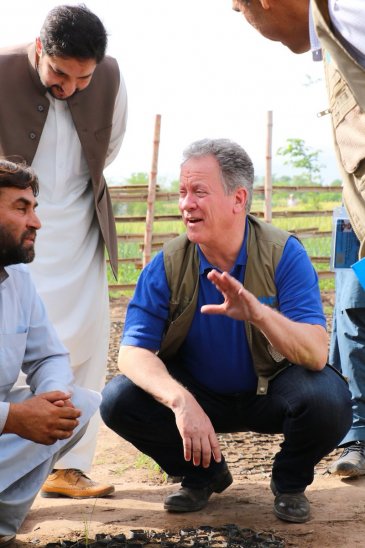Tuesday 24 April Nepalese UN peacekeeping troops are accused of child rape. Wednesday 25 April The Government of South Sudan appointed the Minister of Cabinet Affairs, Martin Elia Lomuro, acting Minister of Foreign Affairs and International Cooperation, which opens questions concerning the status of the current Minister, Deng Alor. Thursday 26 April An armed group… Read more »
This Week in South Sudan – Week 16
Monday 16 April International Crisis Group: “Keeping the Hotline Open Between Sudan and South Sudan. ” (published 13 April) SPLM-IO claims to have seized Nhialdiu, Doau and Tharkan in Unity. The Government of South Sudan (GoSS) denies this. Tuesday 17 April The GoSS has shut down the BBC relay station in Juba and Wau. Reportedly,… Read more »
“Security Threats and Public Perception: Digital Russia and the Ukraine Crisis” (2017)- Reviewed by Bohdana Kurylo
Elizaveta Gaufman, Security Threats and Public Perception: Digital Russia and the Ukraine Crisis, Cham: Palgrave Macmillan, 2017, 222 pp.: 9783319432007 (hbk) Book Review by Bohdana Kurylo The transformation of the Russian state under the presidency of Vladimir Putin, which has culminated in the current crisis in Ukraine, has been of great interest to security studies… Read more »
In the Sahel, militarism doesn’t give us a full picture
By Philippe M Frowd and Adam J Sandor International security interventions in Sahel are multiplying. Military actions such as France’s Operation Barkhane, a Chapter 7 United Nations stabilization mission – MINUSMA, and increasing American military involvement in the region give these actions in the Sahel a ‘hard’, militarised image. Yet the number and scale of… Read more »
Why the Syrian regime has been targeting civilian infrastructure
The recent displacement of civilians and rebel fighters from the Damascus suburb of Eastern Ghouta signals an important victory for the regime of Syrian President Bashar al-Assad. In the face of these successes, it is worth remembering that the imminent downfall of Assad’s regime was proclaimed several times since the onset of violence in Syria in late 2011. Each time, Assad… Read more »
This Week in South Sudan – Week 15
Monday 9 April Paul Malong Awan announced the formation of a new opposition movement called South Sudan United Front. Tuesday 10 April Sudan’s President Omar Hassan al-Bashir ordered the release of political prisoners. The Government of South Sudan (GoSS) granted ex-army chief Paul Malong $5 million to pursue the country’s opposition leader Riek Machar during… Read more »
A Path to Peace and Stability Through Food Aid
Constant war drove Fazle, his wife and four children away from their home and farm in the Khyber region of Pakistan eight years ago. They loved their home, but with all the shooting and the armed extremist groups, he had to leave or endure the death, destruction and instability that comes with war. But seven… Read more »
A Path to Peace and Stability Through Food Aid
Constant war drove Fazle, his wife and four children away from their home and farm in the Khyber region of Pakistan eight years ago. They loved their home, but with all the shooting and the armed extremist groups, he had to leave or endure the death, destruction and instability that comes with war.

David Beasley chatting with Fazle, a farmer and father of five who fled his home for 7 years because of conflict in Pakistan. Photo: WFP Asia-Pacific
But seven years later, Fazle came back home, where I talked to him while visiting the area shortly after Easter, and he’s doing well. After getting six months of food aid, he got into a program that helped him set up a nursery. Now he’s earning about (US)$130 a month, four times his previous income.
What’s happening to Fazle and the area where he lives is an important sign of progress for how humanitarian efforts can build peace and long-term stability in countries where conflict and hunger intertwine
In the year since I became the executive director of the United Nations World Food Programme, I’ve travelled to many of the areas with the highest food insecurity – Yemen, South Sudan, northeast Nigeria, Somalia. I have met many people who worry about food, but they often ask me first for help in creating peace.
It’s easy to see why. Ten out of the 13 largest hunger crises in the world are conflict-driven, and 60 percent of the people in the world who are food insecure live in conflict zones.
The price is highest on children. Hunger, malnutrition and poor health often lead to stunting – a phrase used to describe severely impaired growth in these young bodies. Three out of every four stunted children in the world lives in a conflict area
This Week in South Sudan – Week 14
Tuesday 3 April The government of Uganda will pay the remaining $41 million that the Government of South Sudan (GoSS) owes to ten Ugandan companies for their provision of maize and sorghum between 2008-2010. Wednesday 4 April Salva Kiir has pledged to concede defeat should he lose the upcoming election. Thursday 5 April The ministers… Read more »
Three PRIO Scholars Part of the Next IPCC Author Team
I reported in this Blog on 25 January on the prospects for coverage of the link between climate and conflict in the Sixth Assessment Report (AR6) of the Intergovernmental Panel on Climate Change (IPCC), scheduled for release in 2021–22. The number of chapters in the report for Working Group II has been cut to 18,… Read more »